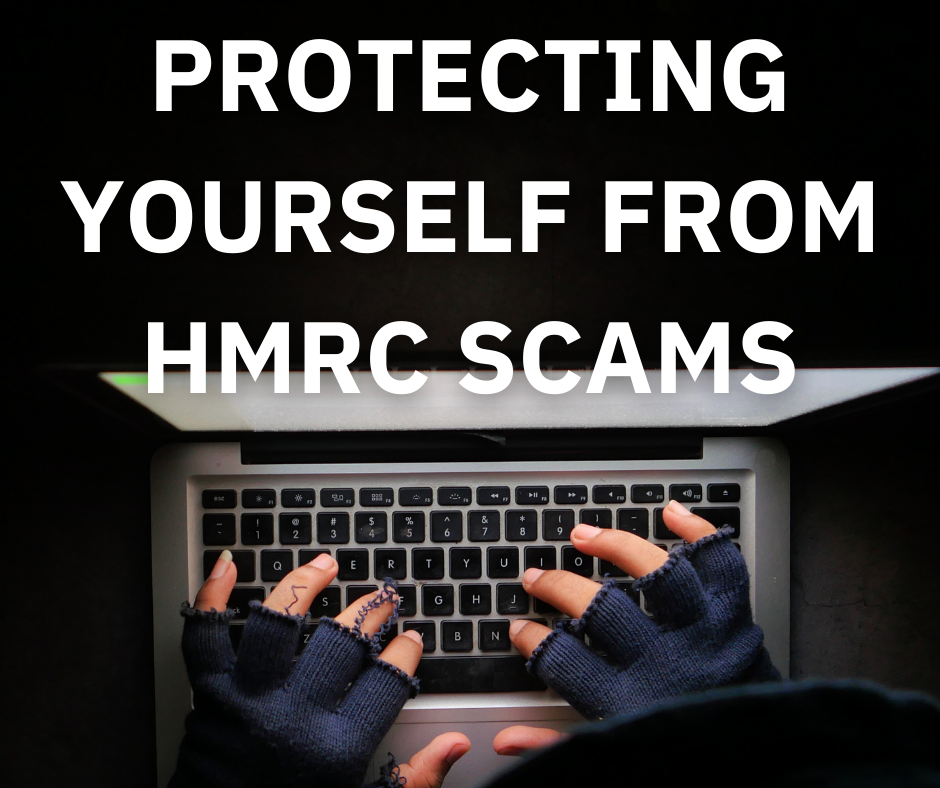Fraudsters are using more complex phishing scams to steal your bank or credit card information through emails, SMS, and phone calls.
These frauds have become such a pervasive problem that HMRC (HM Revenue & Customs) has set up a specific phishing email reporting service.
How can I identify these scams?
Scams have become significantly more complex in recent years, and many people, including those who are technically competent, have fallen victim to them. This may be alarming to you, but in the following list, we highlight some of the ways you may readily spot these scams.
1 - HMRC’s announcement
Customers have been informed by HMRC via Twitter in order to detect legitimate communications from them. Any emails or automated calls from HMRC declaring a lawsuit against you are phishing scams that should be avoided at all costs.
There are also other signs that indicate that these emails, texts, or calls are not legitimate which are:
- They will be caught by most filters and instantly filed in your spam folder;
- The email address of the sender will be unappealing. Even if scammers try their hardest to imitate the official HMRC email address, you can usually determine the fake isn't from a real HMRC account;
- The "address to" box is frequently left blank, indicating that these emails have been mass blind copied (BCC'd) to a large number of recipients (a good indicator for any kind of spam);
- The email does not address you by name, which could indicate that the address was scraped from the internet;
- The form requests far too much data (Mother's maiden name, Driver's License number, Verified by Visa password, and so on).
You can also help out by reporting these scams to HMRC as well. If any of these emails show up in your main inbox, we strongly advise you to forward them to HMRC. It's critical for the taxman to be up to date on the latest phishing techniques, and an email that gets past spam filters frequently means the scammers have discovered a new tactic.
Any suspicious emails should be forwarded to phishing@hmrc.gsi.gov.uk, which will be investigated by HMRC's fraud teams.
HMRC recommends that you either delete the email or mark it as spam with your email provider. This is highly effective as most of the scams can be instantly removed from your main inbox.
2 - Refund tax companies
Companies that send emails or SMS advertising their services are known to HMRC. They normally charge a fee to apply for a tax rebate on your behalf with HMRC. These businesses are unrelated to HMRC in any manner.
3 - Customs duty
This scam is delivered to customers via text and email, informing them that they must pay customs duty in order to receive a valuable parcel that does not exist.
These scams should not be confused with laws that went into effect on January 1, 2021, stating that some UK consumers purchasing products from EU businesses may be required to pay customs fees when the goods are delivered.
4 - Social media scams
Direct messages given to clients via social media are also known to HMRC.
These communications are a scam and are not from official HMRC social media accounts. They would never utilise social media for the following purposes:
- provide a tax break;
- request any personal information.
5 - Suspicious phone calls
It is established that an automated phone call scam informing you that HMRC has filed a lawsuit against you and that you should press 1 to talk with a caseworker to make a payment is a fraud.
This scam has been extensively publicised, and it frequently targets the elderly and defenceless.
Other scam calls may mention National Insurance number fraud or promise a tax rebate in exchange for your bank or credit card details. If you are unable to verify the caller's identity, we advise you not to speak with them.
If you've been a victim of the scam and have lost money, contact Action Fraud.
What you can do to prevent being scammed
This is a significant issue that has impacted many people, and it is one that we are concerned about. As a result, we'll discuss some of the steps you may take to avoid getting scammed if you receive any questionable calls, emails, or texts.
- Block suspicious numbers
- Never give away your personal and financial information
- Speak to a trusted person
- Review your privacy and security settings on social media platforms
- Select your passwords carefully
- Stay vigilant
The majority of the emails follow a pretty familiar pattern so you should be able to spot these scammers almost instantly. If you are still unsure, you should seek advice from another person or an expert.
We are committed to protecting your privacy and data at Persona Finance. If you receive any suspicious emails, phone calls, or text messages, please contact our staff so that we can check their validity. Please contact Persona Finance at [enquiries@personafinance.co.uk] for further information on our services.



